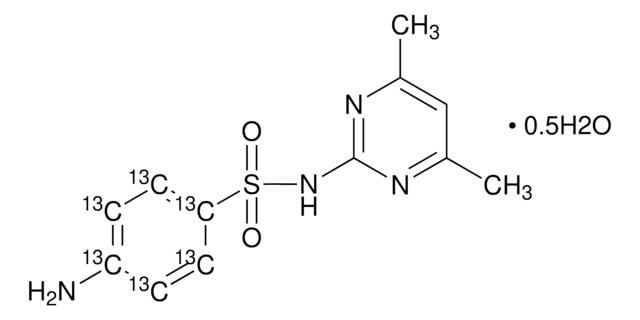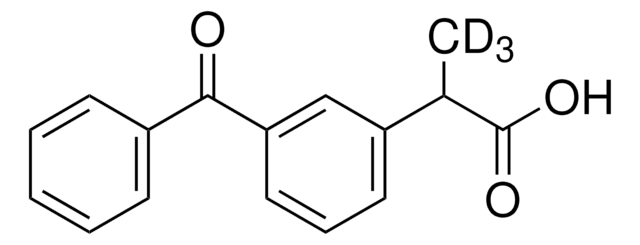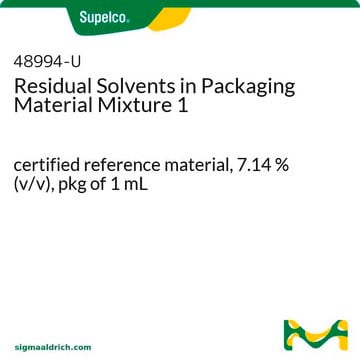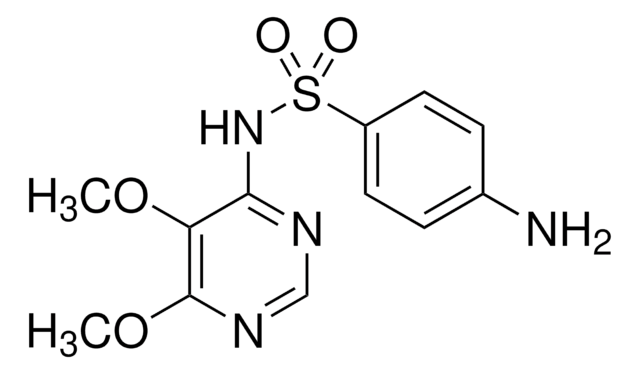32514
Sulfamethoxazole-(phenyl-13C6)
VETRANAL®, analytical standard
Synonym(s):
4-Amino-N-(5-methyl-3-isoxazolyl)benzene-13C6-sulfonamide, N1-(5-Methylisoxazol-3-yl)sulfanilamide-13C6
About This Item
Recommended Products
grade
analytical standard
Quality Level
product line
VETRANAL®
shelf life
limited shelf life, expiry date on the label
technique(s)
HPLC: suitable
gas chromatography (GC): suitable
application(s)
clinical testing
format
neat
mass shift
M+6
SMILES string
Cc1cc(NS(=O)(=O)[13c]2[13cH][13cH][13c](N)[13cH][13cH]2)no1
InChI
1S/C10H11N3O3S/c1-7-6-10(12-16-7)13-17(14,15)9-4-2-8(11)3-5-9/h2-6H,11H2,1H3,(H,12,13)/i2+1,3+1,4+1,5+1,8+1,9+1
InChI key
JLKIGFTWXXRPMT-AHBHZWPESA-N
General description
Application
Legal Information
Signal Word
Warning
Hazard Statements
Precautionary Statements
Hazard Classifications
Eye Irrit. 2 - Repr. 2 - Skin Irrit. 2 - Skin Sens. 1 - STOT SE 3
Target Organs
Respiratory system
Storage Class Code
11 - Combustible Solids
WGK
WGK 3
Personal Protective Equipment
Choose from one of the most recent versions:
Already Own This Product?
Find documentation for the products that you have recently purchased in the Document Library.
Our team of scientists has experience in all areas of research including Life Science, Material Science, Chemical Synthesis, Chromatography, Analytical and many others.
Contact Technical Service










